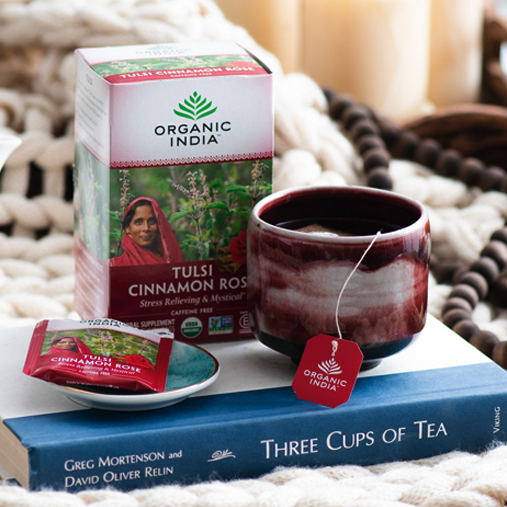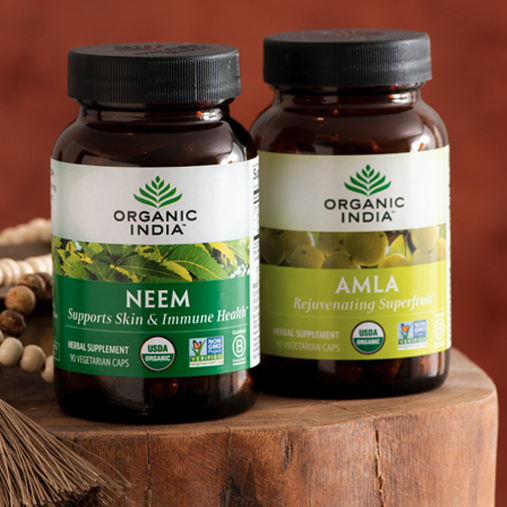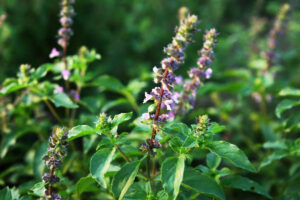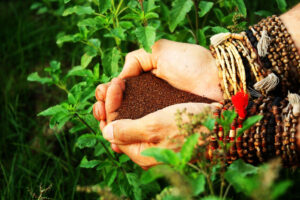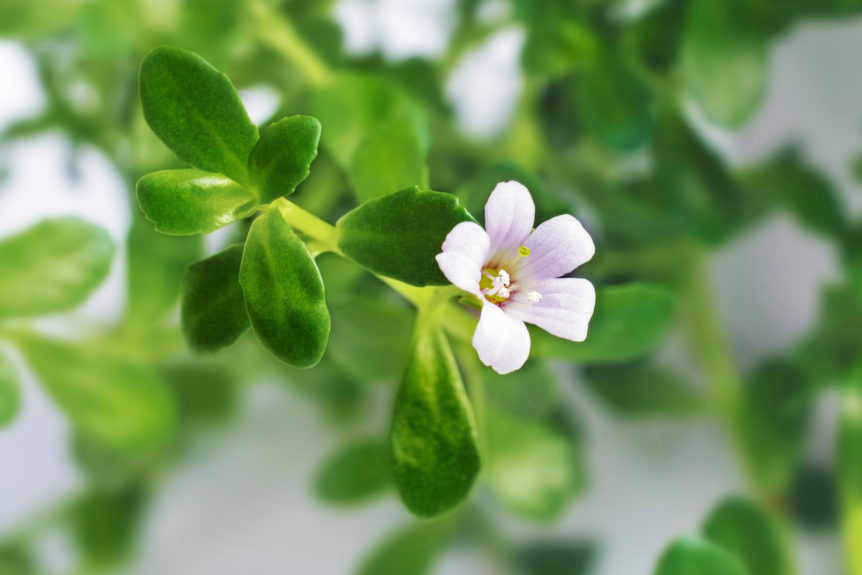Back
Western science is discovering the amazing effects of Bacopa (Bacopa monniera), an herb well known to the traditional Ayurvedic healthcare of India. In Ayurveda, Bacopa has long been used to support memory, stress response, cognitive health, and thyroid health. As a “medhya rasayana,” this small herb helps sharpens intellect, with positive impacts on the mind and brain. According to Acharya Charaka, Ayurveda’s “father of medicine” (300 BCE), Rasayana therapy improves the nutritional status of the body, supporting the formation of healthy cells and tissue that can sustain aging and stress.
It takes focus, memory skills, and great attention to memorize and recite great passages of lengthy Hindu sacred hymns and scriptures, and Bacopa may be the reason for the success of sages and students in accomplishing this feat through the ages. Bacopa is considered so esteemed that it is often referred to as Brahmi, after Brahma, the creator god of the Hindu pantheon.
Bacopa was mentioned around the 6th century AD in the Great Trilogy (Caraka Samhita, Sushrita Samhita, and Astanga Hridaya) and Atharva-Veda Sanskrit texts. The herb has been traditionally used in Hindu rituals to open the gates of knowledge for newborns. In India, scholars have noted, Brahmi has been treasured as a revitalizing herb used by Ayurvedic medical practitioners for at least three millennia.
Now, thousands of years later, researchers have categorized Bacopa as a nootropic — a substance recognized as improving cognitive function, including executive functions, memory, creativity, and motivation. Other herbs classified as nootropics include Gotu Kola, Ashwagandha, Tulsi, and more. Practitioners at the California College of Ayurvedic note that the entire Brahmi (Bacopa) plant has medicinal properties, not just the leaves or roots, as is the case with many herbal remedies.
Bacopa Research
Biomedical researcher Michelle D. Nemetchek, PhD, and her colleagues at the University of Montana reported that as an important ingredient in many Ayurvedic health protocols, Bacopa is used to promote memory, cognition, concentration and learning. Ayurvedic doctors have also used the plant to support a healthy inflammatory response in the brain and central nervous system.
Bacopa’s Versatility in the Ayurvedic Pharmacopoeia
Ayurvedic practitioners laud Bacopa for its bitter and sweet taste (Rasa), cooling energy (Virya) and sweet post-digestive effect (Vipaka). The herb is used to balance all three Doshas and tissues (dhatus) — especially nerve, blood, and plasma. It also has an effect on the circulatory, digestive, nervous, excretory, muscular, reproductive, and other systems (srotas). Bacopa is among the best herbs for balancing and rejuvenating Pitta, while also reducing Kapha. The plant is said to enhance the quality of Sadhaka pitta that directly influences the nature of consciousness. Bacopa may offer photochemical properties protecting the brain and nervous system from free radical damage. The plant also supports reproductive health and is used to rejuvenate the skin.
Bacopa and Stress
Bacopa aids in the recovery from exhaustion, stress, debility, and aggravation of the Vata dosha. It can help ease stress of the mind and support healthy levels of cortisol, nicknamed the “stress hormone.” Overall, Bacopa is a systemic stress-reducer. Therefore, not only can it help relieve stress from the mind, it can help calm the gastrointestinal tract, relax muscles, and support healthy menstruation.
Bacopa’s versatility is not atypical of plants in the legendary Ayurvedic medicine cabinet. This synergy between the plant kingdom and the human organism is treasured more today than ever before in a world of reductionism and isolated chemicals.

